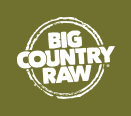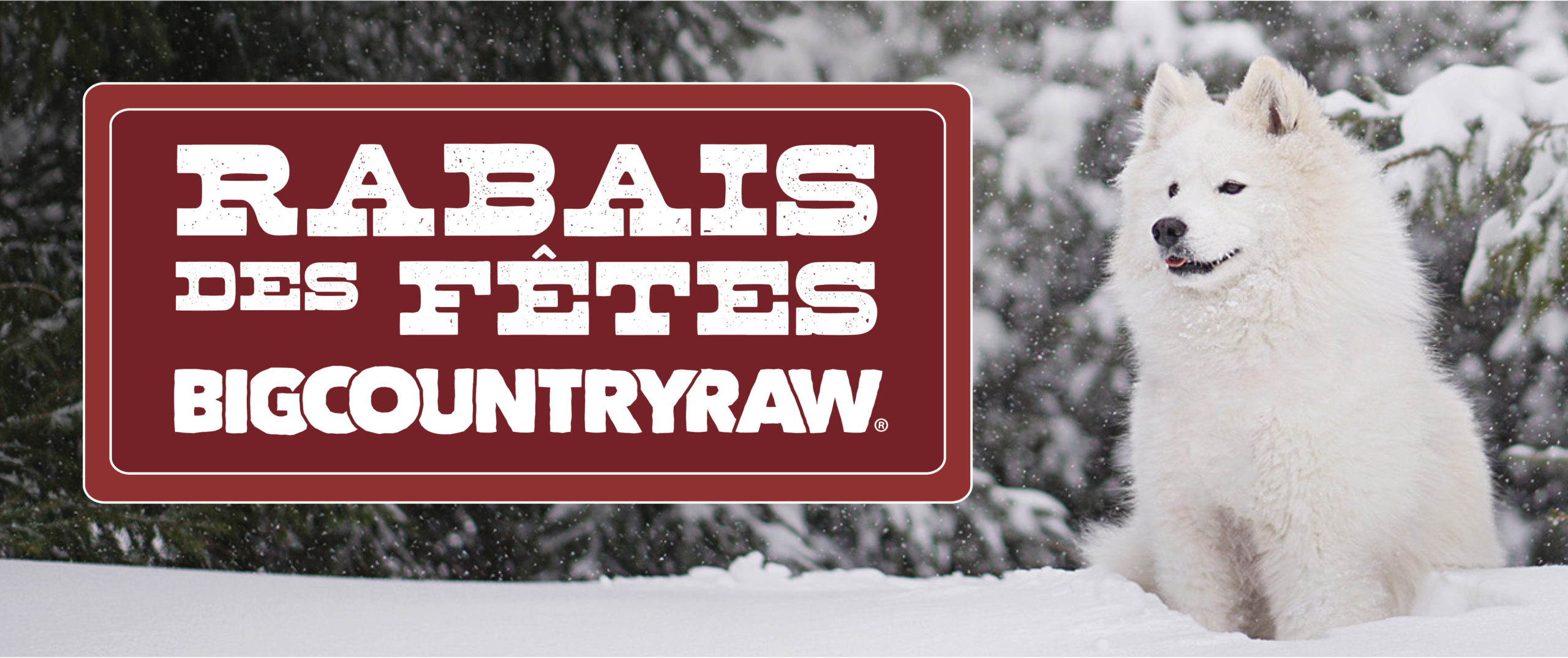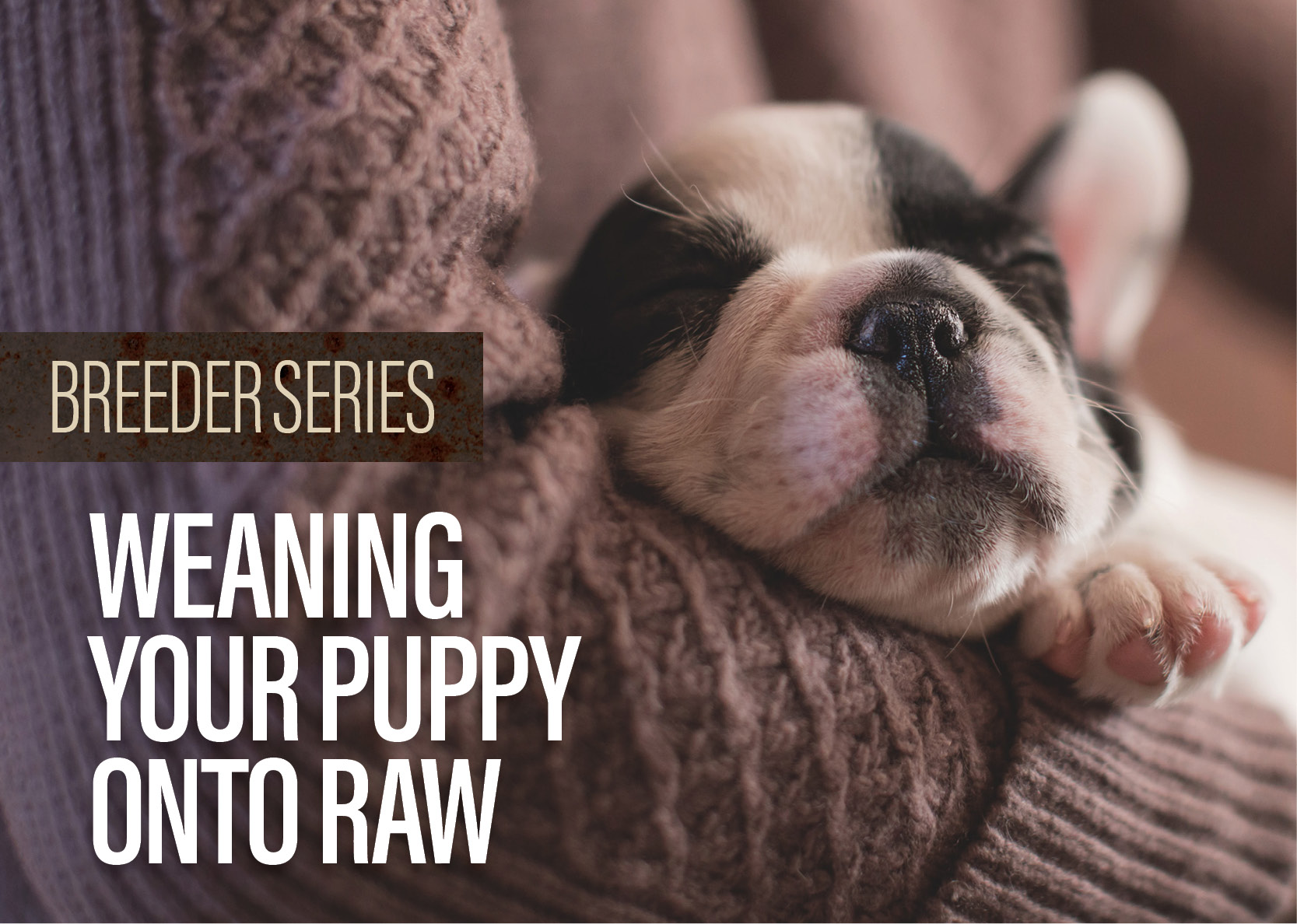By Julie Lauzon, agr, MSc, Pet Nutrition
Starting puppies on raw as soon as possible will give them the best start possible in life. Feeding a raw diet at a young age and during growth can help to prevent joint issues1 and cancer2 later in life. The transition from mom’s milk to whole food is a key moment in their life to ensure optimal gut health and weaning the puppies onto a raw diet is the best option.
When starting the weaning process, introducing Raw Fermented Goat Milk can get puppies interested in trying something other than their mother’s milk. If puppies readily enjoy the goat milk, the next step would be to mix a Pure Formula with the goat milk to create a soup consisting of 4 parts milk to 1 part raw – our Pure Turkey or Pure Chicken are great choices for that first raw meal! Progressively, as the puppies continue the weaning process, needing less food from their mother, you can increase the raw portion in the mix, offering less goat milk.
Once the weaning process has begun, it should take roughly 2 weeks of slowly increasing their food portions before they are fully weaned, no longer needing their mother’s milk. Often puppies are fully weaned, requiring no milk from mom by 6-7 weeks. At this stage, the diet should consist mostly of poultry proteins with some red meat additions in moderation. Chicken, Turkey and Duck Dinner formulations are perfectly balanced meals for growing puppies, offering them all the nutrition they need for proper growth and development.
Puppy Feeding Tips:
- Take the food out 20 minutes before meal time to let it warm up a little because puppies often prefer food that is not directly from the refrigerator. At room temperature, the food also releases more aromas to keep puppies interested in their food.
- When offering red meats (pork, beef or lamb), it’s always a good idea to do so as a portion of the meal rather than the whole meal – for example 75% poultry + 25% red – this is because too much red meat can cause loose stools.
- Make sure to wash all bowls, utensils and feeding surfaces after meal time.
- Always supervise meal times.
Around 7-8 weeks, you can start to introduce soft meal replacement bones – great choices are thawed or frozen chicken or duck necks – the size of your puppies will determine the bone you choose. Marrow bones at this stage are not recommended as they are a load bearing bone and far too hard for their puppy teeth. Also, the marrow is very high in fat and can cause loose stools and an upset tummy.
Chewing bones offers mental and physical stimulation as well as nutrition for growing puppies. As they are learning to chew on bones, it’s important that we teach them to do so, correctly and safely. Holding the bones during the first chewing session can help puppies learn to chew slowly, and chewing on bones properly is a skill best learned young. Offering bones as meal replacements or recreational chews (always supervised) when your dog is still a puppy gives them the opportunity to learn to tear and gnaw at bones with little risk of choking. At this stage it is not very easy to bite off large pieces that would be considered a choking hazard.
Often, when bones are offered to dogs that were never taught as puppies to chew and gnaw, being such a high value reward, bones are swallowed whole or in larger pieces, increasing the risk of choking or bowel obstruction.
AVERTISSEMENT : Always supervise all bone chewing sessions and choose bones appropriate for their size and age. Do not feed more than 2 bones per week, or there will be an imbalance in minerals.
It is wise to advise your puppy families that when their new puppy arrives home, it is normal to see some irregular stools the first couple of days, even if the new family has decided to continue with the raw diet. Those loose stools are not diet related – they are related to the stress of moving and being in a new environment, and it will pass. Fermented Raw Goat Milk and Pumpkin Puree or Powder can help prevent any digestive issues during this transition.
- Grundström, Sari. 2014. Influence of nutrition at young age on canine hip dysplasia in German Shepherd dogs. Helsingfors universitet. https://helda.helsinki.fi/handle/10138/135177
- Nutritional factors and neoplasia in dogs: a data association study on the role of early age diet https://www2.helsinki.fi/sites/default/files/atoms/files/poster_nutritional_factors_and_neoplasia_in_dogs.pdf


